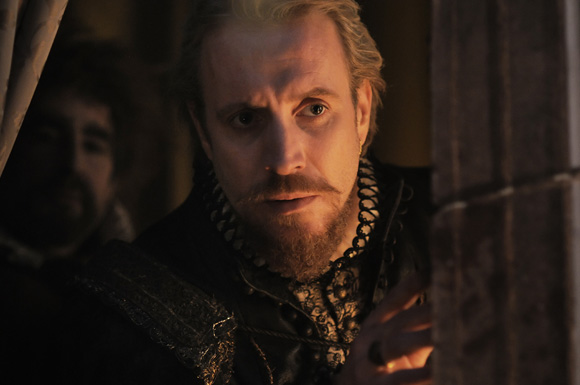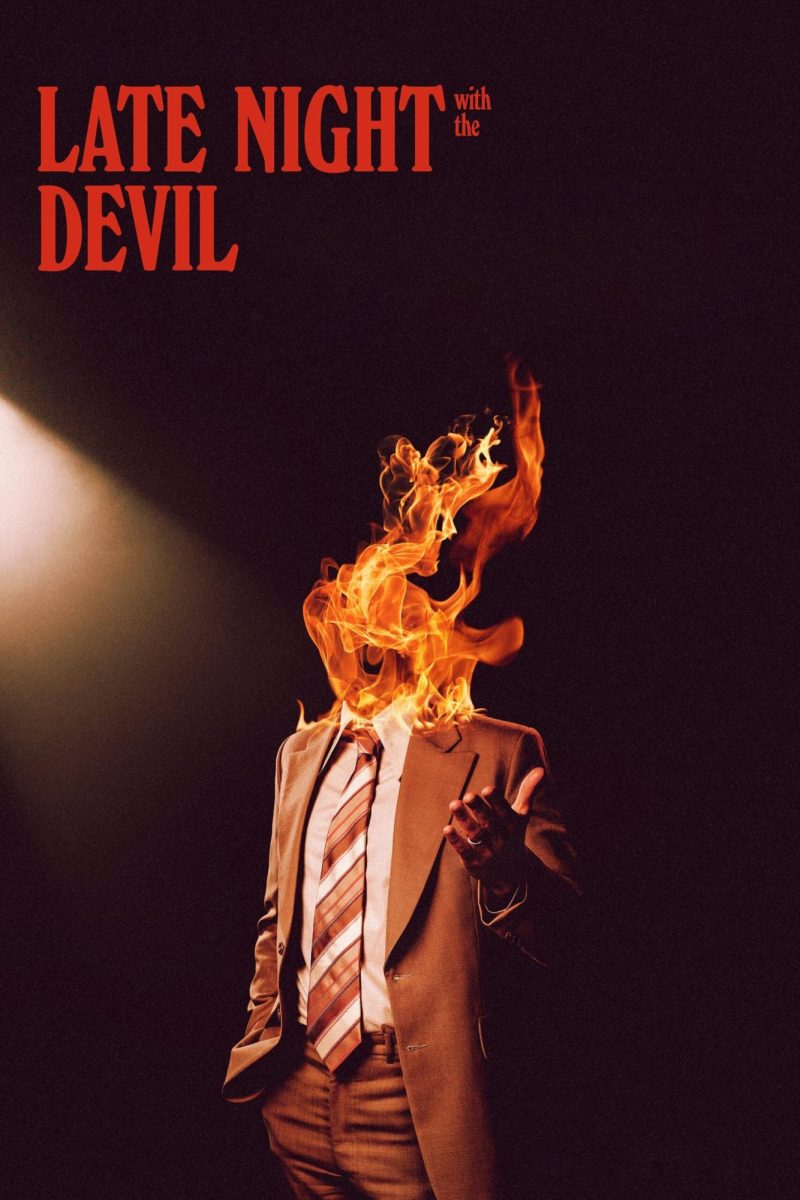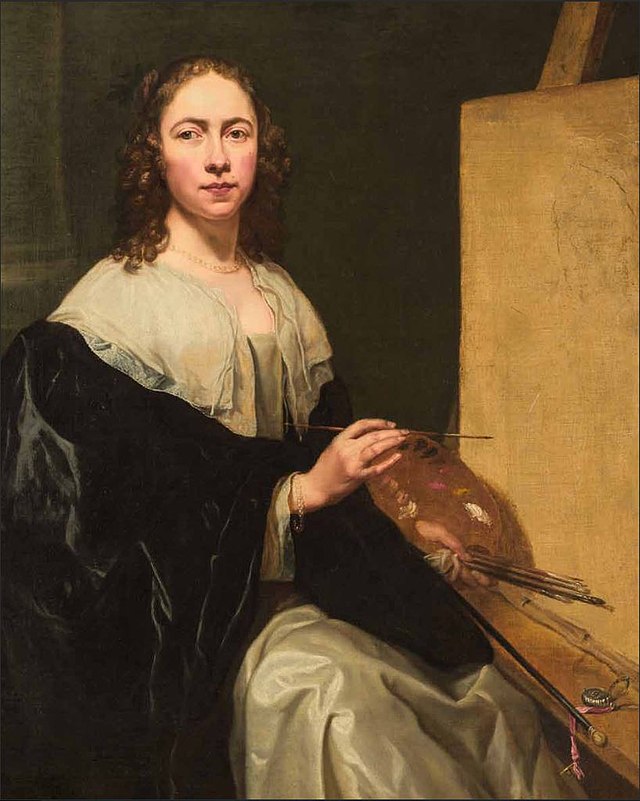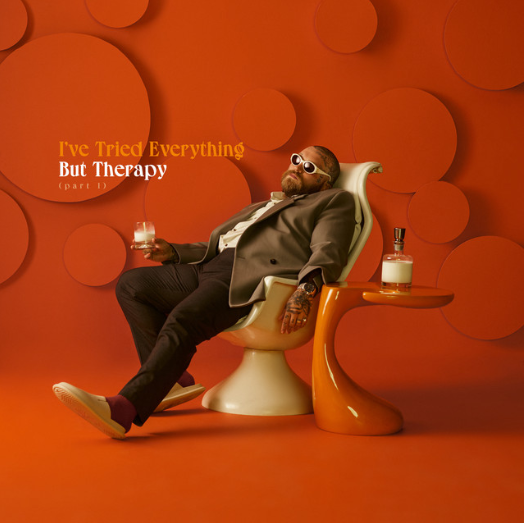He is considered the greatest writer in the English language and the world’s great dramatist. He survived a plague outbreak in 1603. He invented the word “assassination.” His 37 plays and 154 sonnets appear on high school reading lists across the western world. Yet, what if William Shakespeare never wrote a single word?

That is the claim that director Roland Emmerich (“Godzilla,” “2012”) makes in his new film, “Anonymous.” Emmerich, however, is not the first to question the dramatic poet’s genius.
While there was no authorship dispute until roughly 200 years after Shakespeare’s death, skepticism arose in the late 18th century.
“Shakespeare doesn’t fit the Romantic definition of genius,” Jonathan Sawday, professor of English at Saint Louis University, said.
According to Sawday, conspiracy theorists posited Sir Francis Bacon as a candidate for authorship. Bacon was better educated and came from a more elite class and prestigious family, making him a more appealing ideal of artistic genius than a glover’s son. However, Edward de Vere, the Earl of Oxford, has become the favorite of the more than 80 names credited to Shakespeare’s work.
Emmerich and his production company, Centropolis Entertainment, have distributed a study packet as a companion to the film, which claims to invite the audience to “take a second look at our assumptions about Shakespeare and the nature of literary genius.”
“There is no debate among Shakespearean scholars,” Sawday said. “What we’re dealing with here is a conspiracy theory.”
In response to the film’s claims, Sawday has coordinated a discussion panel on the authorship question. At 4:30 p.m. on Tuesday, Nov. 15, in the Il Monastero Sanctuary, Sawday, English department Chairwoman Sara van den Berg, and Billy Shebar, writer of “Dark Matter,” starring Meryl Streep, will discuss both sides of the theory. Other panelists include professors Musa Gurnis-Farrell from Washington University, Vincent Casaregola, Stephen Casmier, Jennifer Rust and Tony Hasler, all from SLU. Sawday invited Emmerich, but the director declined the invitation because he said he has started pre-production on his next film.
Enthusiasts of the theory point to Shakespeare’s biography and the Victorian political climate as evidence that the Earl of Oxford wrote Shakespeare’s plays. Because only de Vere’s poetry survives and none of his plays, some believe that his plays became attributed to Shakespeare and that de Vere’s political office would have made it impossible for him to claim authorship of his own plays. De Vere would have visited some of the places described in Shakespeare’s work, like Verona in “Romeo and Juliet,” or Venice in “The Merchant of Venice.” Furthermore, they claim that some of the plots in Shakespeare’s plays resemble events de Vere’s life.
Shakespeare experts and British literary scholars disagree.
“[Shakespeare] builds from one play to another. The kinds of things he does in a tragedy, he flips into a comedy,” van den Berg said. “There is a continuity. You know Shakespeare when you see it.”
The authorship question continues to surface in pop culture, especially in America. Its most recent resurgence emerged after the 1930s when Thomas Looney first posited the Earl of Oxford as the true author. The Earl of Oxford’s writing skill has been questioned, however.
“There is no question that [the Earl of Oxford’s poetry] was second-rate poetry. So, unless he was playing dumb, it’s hard to believe that the same mind produced ‘Hamlet,’” Donald Stump, professor of English, said.
Like van den Berg, Stump is teaching a course in Shakespeare this semester, but they said that neither of them has been asked about authorship by a skeptical student.
Even though students do not seem too concerned with the theory, SLU is not the only university to take an effort to set the record straight. English professors at Washington University have encouraged their students to attend the panel. Academia is taking a large-scale effort to counter this theory, even if “Anonymous” is just a movie.
“It’s a bit like denying climate change, or like arguing that the world is flat,” Sawday said. “It is deeply and profoundly anti-intellectual.”
Stump, Sawday and van den Berg said they have encouraged their students to see the film and attend the panel.
“It does raise interesting questions about how people use evidence to rise to conclusions. In this case, though, there’s not much evidence,” Stump said.
Bridget Bergin, a sophomore in the College of Arts and Sciences and an English major, first heard about the controversy, the film and the panel in Sawday’s class.
“I will be attending the panel because I am excited to see what Mr. Shebar will bring to the discussion as a filmmaker, and I am interested in the idea of disputed authorship as a conspiracy theory,” Bergin said.
Sawday is planning to see the film, and van den Berg has already seen it. While both recognize that movies often alter reality for aesthetic or narrative reasons, they said they see “Anonymous” as a missed opportunity.
“It’s sad because Shakespeare is for everybody,” van den Berg said. “He wasn’t writing for the elite. He was popular culture.”
While “Anonymous” has been largely panned by film critics, it has been successful at the box office in limited release, averaging $3,856 per theater. Jennifer Rust, professor of English, said that when she saw the film, the audience applauded at the end.
“I was sitting there laughing at it, and everyone in the audience was taking it seriously,” Rust said.
Perhaps part of the attraction comes from a general interest in conspiracy theories, but there is also an air of distrust of experts that is adrift.
“It doesn’t matter what the experts are saying,” Sawday said. “It’s what the media picks up. The story is just too good.”
The panel will discuss the evolution of the conspiracy theory, historical knowledge of Shakespeare, and the role of popular culture in influencing discourse. “Anonymous” has been marketed strongly to students, appearing on SparkNotes, for instance, so the discussion will examine the status of “experts” in our culture and the implications of knowledge in the media.
Rust said she has encouraged her graduate students to attend the panel because many plan to become English teachers.
“As teachers, they will have students who bring these questions up, so they should hear different ways to answer those questions,” Rust said.
Rust said that she seldom is asked the question of Shakespearean authorship from undergraduates. Instead, she said, there are far more interesting questions to explore about Shakespeare.
“The Shakespeare we get in the text is more interesting than the conspiracy theory,” Rust said. “Learn about the real story because the history is more interesting than the fiction.”
Sawday said that he hopes the panel will teach students to be aware that there is such a thing as expert knowledge.
“There are some ways of understanding evidence that are better than others,” Sawday said.







